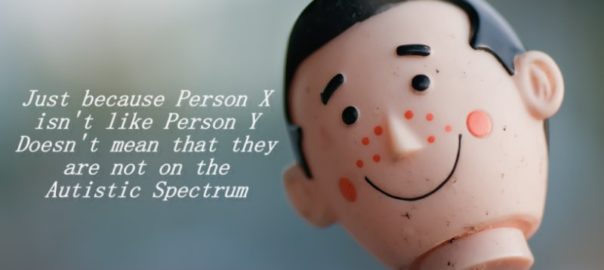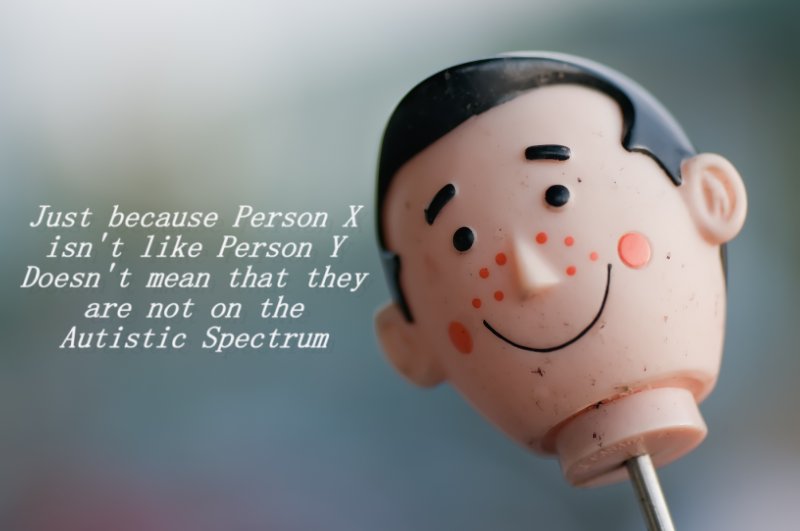As someone who has experience of the Autistic Spectrum there are some things I wish you to know. I think it would be useful as a society as a whole if we were all more educated and understanding. I myself wish I knew when I first started to consider whether my son was on the Autistic Spectrum; as I remember there were some stereotypical hurdles that I had to overcome. For instance I thought that those on the spectrum could not lie, that they were honest to a fault. I am not even sure if my son knew he was lying or if in his mind it was the truth but he definitely did not tell as it was. I still remember my husband filming him swigging a toy dog around, and even when showing him the video he denied doing it! Another thing was he was taught how to give some sort of eye-contact (so again I wrongly assumed he could not be on the Autistic Spectrum). So here are ten things as a parent with a child on the autistic spectrum, and suspected Asperger’ syndrome myself that I would like you to know:
10 Things I wish you knew about the Autistic Spectrum
- Autism is for life – causing difficulty in the areas of social interaction, communication and the senses. This can be accompanied by repetitive and restricted interests, activities/behaviours, and problems with executive function.
- Those on the Autistic Spectrum may interpret the world differently to others – including not “just knowing” things that are socially acceptable or being able to read body language.
- People on the Autistic Spectrum are just that people. They may behave in a way that makes some people feel uncomfortable but they do not mean to; and do have feelings too. They may not be great with social relationships but that does not mean that they do not crave them (some may not) and still require love and understanding.
- Autism is on a spectrum – and each and every individual is different in how autism touches their lives. But then again no two person are the same anyway – those with Autism are no different to that. Just because person X does not act the same as person Y who you know on the autistic spectrum doesn’t mean that person X is lying about being on the autistic spectrum.
- Talking of which there is no right way of talking about Autism in relation to people – some prefer if you say person with autism and others prefer autistic person; I think as long as you are not being unkind/using it as a put down it really does not matter in the grand scheme of things (particular as communication/social relationships is an area that they struggle in any way!)
- People on the Autism Specrtrum are not all gifted at something. Some people are, but again so are some non-autistic people. Again everyone is a gift whatever their capabilities, with or without autism. Although how their condition makes their daily life more difficult, and getting through it, is surely a gift in itself.
- Try to be accepting. You may not understand why that individual in the supermarket is flapping/making noises/chewing, etc but either way try not to judge. Think maybe about why they are doing these things – how hard it is for them to cope at that minute.
- Autism can happen in both males and females – it just might present itself differently.
- Autism is an invisible disability. Some people struggle into their adult lives before they even discover that they are on the autistic spectrum. Just because you can’t see how difficult things can be doesn’t mean that they are easy.
- There is no cure for Autism – and neither should there be. Understanding and acceptance is what is needed – autism does not make a person bad, judging them and treating people badly does though.
Do you agree with these 10 things? Is there anything you would have added?





a good post, useful, thank you for letting me know the above !